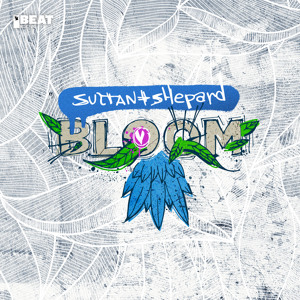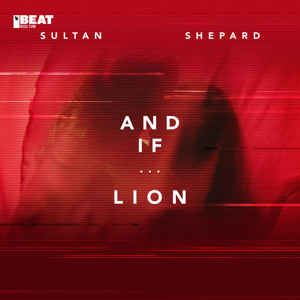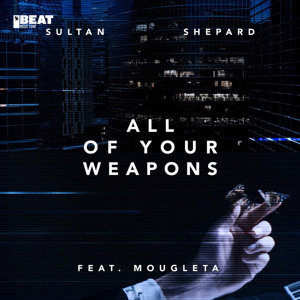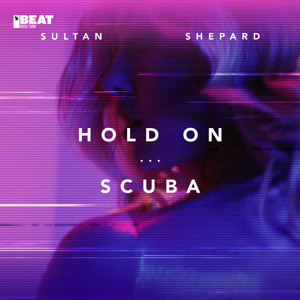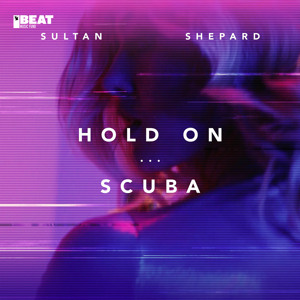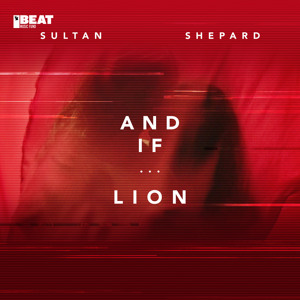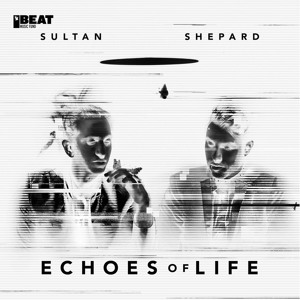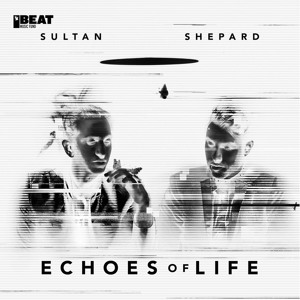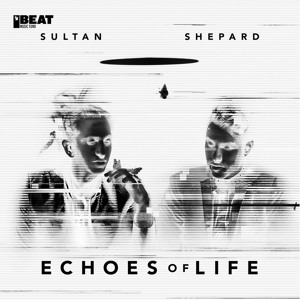VIP Client Story: Sultan And Shepard

After a chance meeting in the after hours club scene in Montreal in the mid 2000's, Ossama Al Sarraf and Ned Shepard quickly discovered that they had a natural musical chemistry. They soon began collaborating on original songs, remixes, and songwriting, signing their first song to John Digweed’s Bedrock label and officially forming Sultan + Shepard in 2010. From collaborations with revered EDM artists such as Dillon Francis, Tiesto, and Kaskade to remixes for major pop acts like Coldplay, Ed Sheeran, Lady Gaga, and Madonna, the duo established themselves as one of dance music’s leading partnerships. The 2012 release of their anthemic single "Walls" vaulted them on tour across the globe with stops at Ultra Music Festival, Tomorrowland, Mysteryland, and a residency at the Wynn in Las Vegas.
In 2013, their remix of Bruno Mars’ "Locked Out Of Heaven" earned them a Grammy nomination. The duo also received the Canadian songwriters SOCAN Music award for International Song of the Year for "Bad", the multi-platinum single which they co-wrote alongside David Guetta, Showtek and Vassy.
In the summer of 2017, Sultan and Ned reunited with singer Nadia Ali to release the folk inspired dance anthem "Almost Home" also featuring NYC based songwriter Iro. Almost Home went to #1 on the Billboard Dance Charts and was nominated for a Juno Award for Best Dance Recording.
In the fall of 2019, they released their debut double album “Echoes of Life” through Armada Music, including collaborations with Nadia Ali, Tritonal, Showtek, Bahari, and more. To date, the album has already amassed over 50 million streams and showcases both the melodic, club songs that they have become known for, as well as a return to their deep house and progressive roots.
Most recently, the duo signed with Lane 8’s label This Never Happened, releasing “The Kochi EP” to much critical acclaim. They also launched a new radio show “Dialekt Radio”, in partnership with Insomniac Radio, to present progressive and deep, melodic music.
For more information about Sultan And Shepard please see their SoundCloud, YouTube, Twitter, Instagram, Facebook, and Home pages.
GENERAL

You guys originally met in Montreal? Sona or Stereo? Or? How did you get involved in music originally?
Ned: I first saw Sultan open for Nick Warren at Sona, but we actually met a few weeks later at a club called Illume. I gave him a CD of music I was working on and he called me the next day and told me he liked it. Sultan: It's weird because I never listened to other demos I got, but it just worked out like that. We were friends for a while before we started collaborating, we used to just play each other stuff and give feedback. Ned: Eventually I remixed a song of his and then we started working together and it was a natural chemistry right away.
Who were some of your early heroes and idols in dance music as you were beginning your journey? Any up and coming artist and producers you are particularly excited about?

When we started it was all about Deep House, Progressive and melodic music which is funny cause the cycle has come back around and that's the sound of right now. We were very into Deep Dish, Sasha & Digweed, all of the Global Underground DJ's. They were really setting the trend at the time. Right now, we love what Lane 8 is doing as well as some other guys on the TNH label like Jerro, Deeparture and Le Youth.
What was the original balance of duties in your team? One of you was more the DJ/performer and the other the producer/engineer, or? Has that balance evolved over the years working together?
Ned: Originally, Sultan was DJ'ing in clubs and I was just DJ'ing in my bedroom, but he was also a great producer so as far as the musical creation goes it's always been equally shared. I play keys and he plays guitars so musically it's a natural fit. As far as who's behind the computer and when, I tend to do most of the editing and programming and he is in charge of the mixing. We usually fight over the arrangements until we're happy:) I tend to be a little more macro and he's a little more micro, but we both have our inputs into every aspect so it's a very communal process.
Your music is heavily melodic and and "musical" in the traditional sense of the word. Do either of you have a traditional musical background and play any traditional instrument(s)? What is your writing process for creating new chord progressions and melodic elements?
Sultan: I started playing drums when I was 11 and then guitar at 16. I was in a rock band for about ten years. We were signed and did the whole thing but that was definitely the foundation of my musical background. Ned: I started playing piano around age 5 and studied classical, jazz and blues but when i heard electronic music when i was 14 it was kind of game over, and I fell in love with synths. Sultan is a really great rhythm player, so all of the melodies he comes up with always have a good rhythm. I tend to hear harmonies in the chord structures so it's a nice match in that way.
Can you share some of your favorite career highlights that you found most rewarding personally?
There's been so many moments. Being nominated for a Grammy and Juno's is always exciting but honestly there's been shows that were so special and the look of joy on people's faces that stayed with us forever. Specifically, the first tour we did together in India, Pacha in Buenos Aires, Warung in Brazil, Global Gathering in Ukraine. These were all done at a time when Dance music was underground and there was no social media so the memory of it is imprinted in our brains.
Any cool upcoming projects coming up that you care to share with our readers?
We're working on a really cool project with This Never Happened so stay tuned!
How has your work been affected by the current COVID-19 situation in 2020? Have you been using the time away from touring to do more and more studio and production work? What other creative ways have you been exploring to maximize this current period?
It's pretty intense because like everyone else, not touring has a huge impact on us. But we've been making the most of it and making a ton of new music. The first couple weeks of the pandemic especially were a really crazy time but we were really focused cause there was literally nothing going on. So that actually made the music much better!
As a multicultural team that creates incredibly beautiful, uplifting, inspiring, edifying and downright funky music that seems unwaveringly to be a pure celebration of life, do you have any words of wisdom for people in these times of increased division and strife on how we can best learn from each other and use the best parts of everyone to build synergy and increase love and respect of one another?
Listen to other people and try to become aware of your internal biases. Don't be afraid to admit that you don't know something and be open to changing your view when you get new information.
Thanks for helping to make our world a more happy place! Please never stop!

GEAR
What does your studio look like these days? Are you mostly in the box, or do you use a lot of hardware as well?

Mostly in the box. But we do use guitars - Les Paul, Martin, and Fender as well as a Wurlitzer. The rest are mostly virtual synths and plug-ins.
Do you spend most of your production time together in the same room, or do you often generate ideas and ingredients independently, or on the road on a laptop, and then later bring them back to the main studio for further production?
Ned: We're mostly in the same room, but Sultan often comes up with riffs or beginning ideas for songs on his laptop and then when I come in I add chords or bass and then we go from there. That's usually the fastest way for a song idea to start.
What computer hardware, CPU, OS, and host application(s) are you using?
We've got a MacBook Pro running Os X Catalina and ProTools 2020.
What are some of your favorite music software and plug-ins excluding 2CAudio products?
We really love SoundToys. Everything they make is fantastic and we use them, especially EchoBoy on every track.
Any special hardware products you still can not live without?
Avalon pre-amp.
REVERB & WORKFLOW

How important is quality reverb and spatialization to your sound?
It's a game changer.
Do you typically use reverbs on sends, or have you begun to use them on directly on track inserts? How many different reverb instances are in a typical session of yours?
We usually use them directly on tracks. We were never really a fan of sends, we like to have control over the reverb on each track.
Any other reverb tips and tricks you can offer young artists and producers?
There's the reverse reverb trick before a vocal to give it a little foreshadowing. Also make sure you cut the highs if you're using a lot of verb to kill that annoying high end frequency.
Do you ever print your verbs and then apply additional edits such as manual gating etc?
Sometimes we do. Printing things always makes for an interesting time because when you can see the audio, you tend to mess with it in a way that you just can't if you can only hear it.

2CAUDIO

How did you originally hear about 2CAudio, what was the first 2CAudio product you used?
We first heard about 2CAudio from our friend BT. He was raving about it. We started with Aether and haven't looked back!
How exclusively are you using 2CAudio products for your reverb needs? What else are you using?
We use it as our main reverb for the important elements in a song like a lead vocal or hook. It can suck up a lot of juice so we also use ProTool's Revibe to complement it. Revibe also has nice tails for fx processing because it's a dirtier sound. RVerb is good for processing too, but none of them sound as clean or create as much depth as 2C Audio.
What is your current favorite 2CAudio product? What features make it most attractive to you?
We really are in love with B2. We like the ability to oversample and honestly some of the user presets are such a good place to start you don't even need to adjust too much. As a dimension expander it's incredible.
How do you choose between our various verbs? Are their specific instruments or vibes for which you prefer one over the other?
We really love them all. The B2 is great for really sharp and distinct sounds because it makes them feel like they are in outer space. Aether is great for more subtle sounds that just need a smooth and clear reverb.
Have you explored using Precedence and its integration with Breeze 2.5 in your workflow?
Honestly, not yet! We are still getting to know all the 2CAudio products and haven't even had time to dive into those yet.
We understand Sultan has an electrical engineering degree? One might assume you guys get pretty deep into custom sound design and creating your own presets and such?
Ha - I do have an electrical engineering degree! I guess it helps with the ability to just hunker down and tweak something until it's right. We both love messing with sounds and twisting things until we get the sound that is in our head.
Any interesting ways in which you have used or abused our products in extreme and non-traditional ways?
We noticed that sometimes if you press save (command-S) on Pro Tools then the computer will sort of freeze and glitch out for a second. So we've printed audio from a track with the B2 on it while saving to record the effect and it can be really freaking cool.
2CAudio In The Mix: Sultan And Shepard
Kochi EP
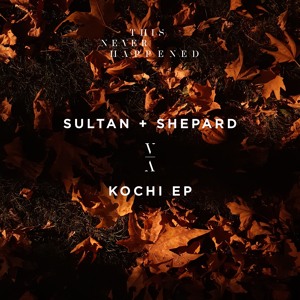


Guaba EP
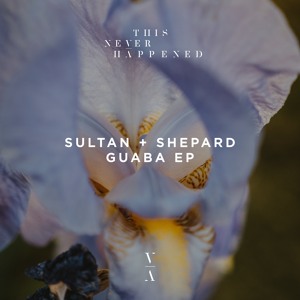


Echoes Of Life: Night
